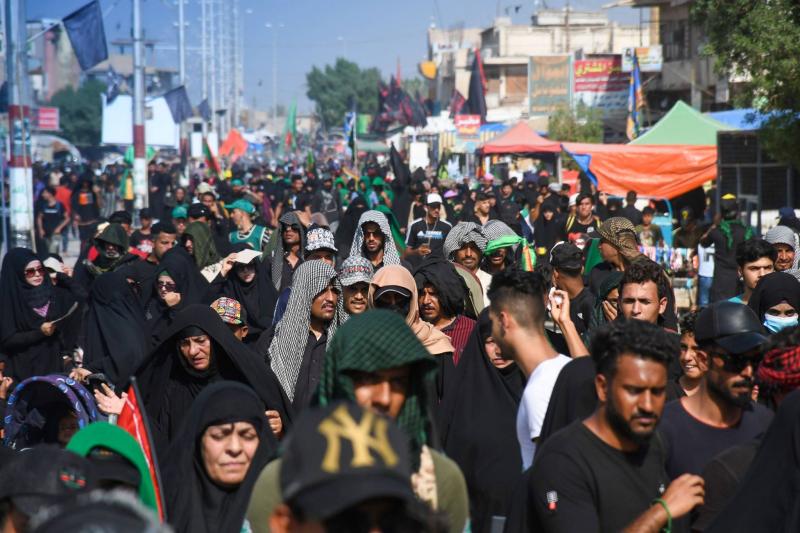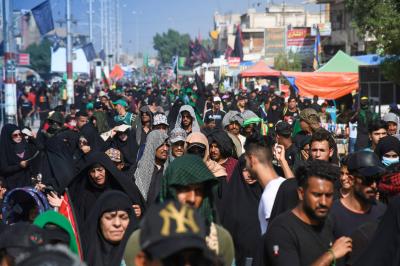Iraqi provinces have recorded traffic incidents that led to dozens of injuries among Iranian pilgrims heading to Kerbala, southern Iraq, to participate in the commemoration of the annual Arbaeen memorial for the martyrdom of Imam Hussein (ع). Millions of pilgrims started making their way to Kerbala on foot from various provinces and countries, with "service tents" set up to distribute food and drinks for free to the visitors.
According to Iraqi news stations, a bus carrying Iranian pilgrims collided early Friday morning with an oil tanker on the highway in Al-Diwaniyah Province (southern Iraq), resulting in the death of the bus driver, an Iraqi national, and an Iranian pilgrim, as well as injuring 61 Iranian nationals. The reports stated that the pilgrims had completed their visit and were on their way back to their country heading towards the Shalamcheh border crossing between the two countries.
Additionally, 11 Iranian pilgrims were injured due to their bus overturning in Diyala Province, which connects Iran to the Iraqi capital, Baghdad. Local Iraqi sources indicated that "the bus overturned in the Al-Aswad area of Diyala," noting that "the injuries varied and the injured were transported to a nearby hospital for treatment."
Last Thursday, 10 Iranian pilgrims were also injured in a similar bus overturning incident in Diyala along the Khanaqin-Muqaddadiyah–Baghdad road.
Prime Minister Muhammad Shi'a al-Sudani directed the Ministry of Interior to utilize all its resources to prevent traffic accidents during the Arbaeen pilgrimage. According to a statement from the ministry, Al-Sudani instructed the Ministry of Interior, through the General Traffic Directorate and its supporting departments, to work on mobilizing all resources to prevent traffic accidents during the pilgrimage. He emphasized a full alert for the General Traffic Directorate and the deployment of its detachments on all roads taken by the pilgrims, while monitoring the work of cameras and radars on external roads.
In turn, the head of the General Traffic Directorate in Iraq, Major General Raad Mahdi Abdul-Sahib, confirmed instructions to traffic directorates in Baghdad and provinces for a full mobilization through the spread of patrols and detachments on all routes taken by the pilgrims and taking necessary measures to limit traffic accidents. He called on pilgrims to "adhere to designated routes and avoid random crossings to prevent pedestrian accidents and cooperate with traffic personnel and other security forces for safe road crossing."
The High Security Committee for ensuring the Arbaeen pilgrimage called on vehicle owners to "exercise caution while driving, avoid exceeding the speed limit, and cooperate fully with all security agencies to prevent traffic accidents during the pilgrimage."
Since the beginning of the month of Safar in the Hijri calendar, security agencies have begun implementing specific plans to secure the pathways for pilgrims heading to Kerbala to commemorate Arbaeen. The designated routes for pilgrims witness immense human traffic every year due to the influx of most residents of the provinces to Kerbala over several days, in addition to pilgrims arriving from abroad, particularly from Iran, who are estimated to exceed five million annually through various airports and land border crossings in Iraq.




